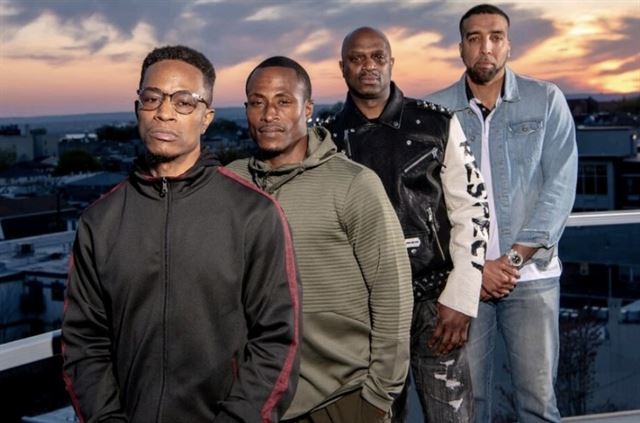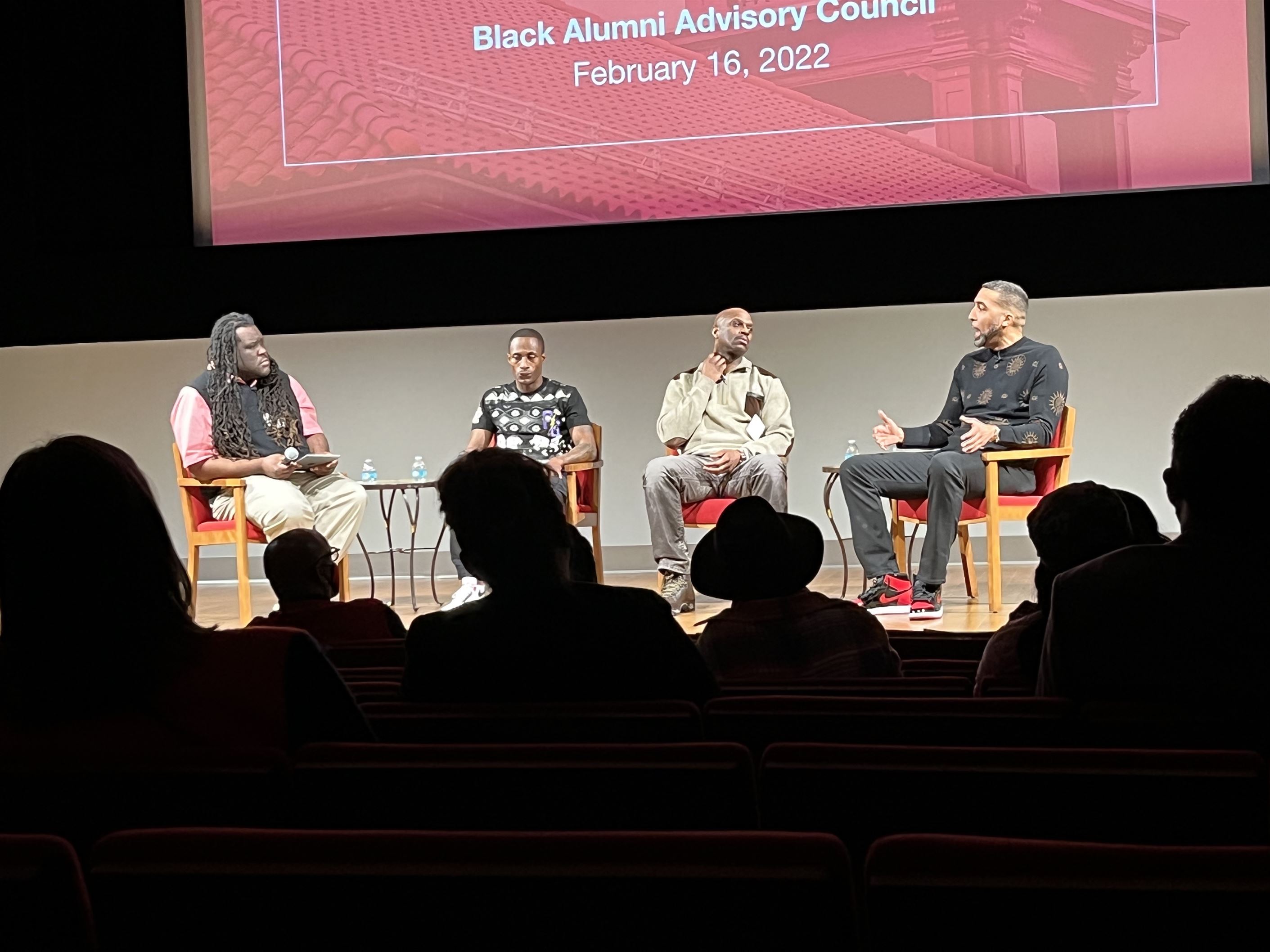The men of the Jersey Four were no different than other college students. They had dreams of playing college basketball and eventually getting into the NBA. However, these aspiring college basketball players live to tell a different story about the horrific night that changed their lives and ended their basketball careers.
In honor of Black History Month, Montclair State’s Black Alumni Advisory Council, along with Montclair State alumnus, Greg Collins, organized a panel that showcased the Jersey Four. The men met Collins through their former attorney, Johnnie Cochran, and have built a strong friendship that has lasted years.
On April 23, 1998, these four men of color were racially profiled and shot at by white police officers on the New Jersey Turnpike while on a trip from New York to attend college basketball tryouts at North Carolina Central University.
The driver, Keshon Moore, was not violating any traffic laws prior to the police pulling them over. When the men were stopped, Moore accidentally put the car in reverse instead of park, causing their vehicle to bump into the police car and prompting the police to open fire.
Although Moore was unable to attend, three of the men, Rayshawn Brown, Jarmaine Grant and Danny Reyes spoke about their recollections of the incident and how it continues to impact them.
Brown, who was shot twice during the incident, spoke openly about the mental health struggles he has experienced since the ordeal.
“I spent two years in intensive psychiatric therapy,” Brown said. “I spent two years in [physical therapy]. I had reconstructive surgery done to get mobility and strength in my right arm. It’s hard for me to talk about this situation because of the effect it has on me. I still question, ‘Why did it happen to me?’”
Grant gave details about the physical injuries he acquired.
“I was shot four times,” Grant said. “I was the passenger in the back seat. I was actually asleep. The first bullet that entered the car woke me up. That shattered my kneecap.”
In terms of physical damage, Reyes sustained the most.
“For me, it was the physical part first because I was so messed up,” Reyes said. “I was shot six times and it took me three years of physical therapy to get back to normal. It was definitely an uphill battle.”
The cops were indicted on charges of aggravated assault and attempted murder against Reyes.

The Jersey Four members (left to right), Keshon Moore, Rayshawn Brown, Jarmaine Grant, and Danny Reyes.
Photo courtesy of Rayshawn Brown
Ultimately, it was proven through a lengthy investigation that the men of the Jersey Four were innocent. They spoke about how the cops who shot them falsified records, and that the cops lied about the men being unemployed and the men trying to run them over.
During the panel, Grant made a powerful statement expressing an unfortunate reality they faced that night.
“You leave the hood, where you thought you were most likely to get into an incident and get shot, and [you] go to an institute of higher learning and get shot,” Grant said. “We did everything possible to not get into any situations where we grew up.”
As the men told the effects this tragedy had on their lives, it greatly affected those who watched. One person who expressed her amazement with their story was the president of the Black Alumni Advisory Council, Joanne Bowman.
“I sat there in awe of their story,” Bowman said. “You can read things in the paper, you can read things online, you can get the perspective that others have. It’s not until you’re there hearing it yourself that you can say, ‘I heard their story from them.’”
The Jersey Four men know the value their story carries and feel it is important to keep sharing their story.
As he reflected on the panel, Grant expressed the importance of their purpose.
“When I start to replay those things, it gives me more of a purpose to talk strongly about the reason why we actually survived,” Grant said.
Reyes touched on why their story stands out in comparison to the similar stories of others.
“It’s very unique because we were going to a place of higher learning,” Reyes said. “It really hits home when you have four individuals that [are] trying to do the right thing. From different parts of the city, get together for a common cause and even those people are targeted.”
Brown added to Reyes’ point and stated reasons why they feel a responsibility to continue fighting for civil rights.
“We are survivors. We didn’t pass away,” Brown said. “Also, the fact that we have to tell this story [is] because of our ancestors. Those who were before us through the marches. They set the [precedent]. They set the foundation.”
Currently, the men continue their fight for racial equality by giving back to their community through their foundation, Pass 2 Assist. To see the remarkable work of the Jersey Four, visit their Instagram accounts: @pass2assist and @thejersey4.



